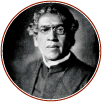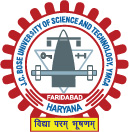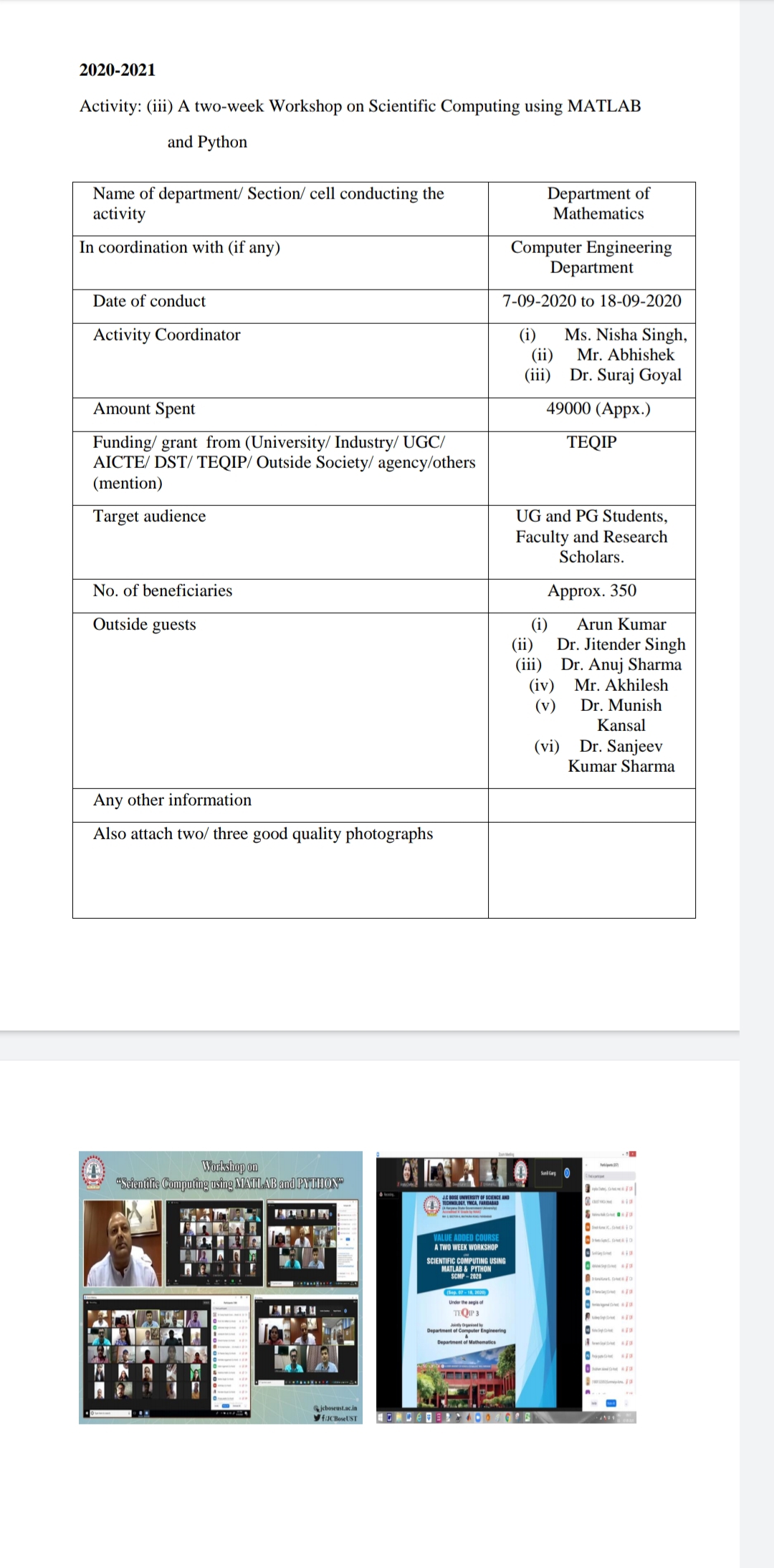• Report on A two-week Workshop on Scientific Computing using MATLAB and Python Department of Mathematics jointly with Department of Computer Engineering, J. C. Bose university of Science and Technology, YMCA, Faridabad organizes an online two-week workshop on “Scientific Computing using MATLAB and PYTHON’. The workshop is held during 07-18th September 2020. More than 500 participants from different states of the country have registered for the TEQIP-III sponsored value added course. The workshop is specially intended for UG/PG students and faculty members of Mathematics and Computer Science streams. The content of the course is designed in such a way that even beginners are benefited by attending the workshop. Software like MATLAB, PYTHON, MATHEMATICA etc. have important roles in all the aspects of science and engineering. This particular course is developed to provide basic knowledge of PYTHON and MATLAB to the young minds. Learning and implementing such software in practical problems has changed the very meaning of scientific computing. The main objectives of this workshop are as: • Introducing MATLAB and PYTHON to the beginners • Learners being able to do simple calculations using MATLAB and PYTHON. • Advanced learners being able to develop different applications and prototyping using PYTHON and MATLAB In the very first day of the course, there are three consecutive lectures by the eminent speaker Er. Akhilesh Kumar from MathWorks Design Tech Systems Pvt. Ltd. In session 1, Akhilesh sir has given an overview on MATLAB. He has talked about the brief history, variables and expressions, 2D & 3D Plots, combining multiple plots & annotation, writing live script and exporting data to files. In the afternoon session, he has described basics of data analysis with MATLAB, data export and import, routines and creating documentation etc. In the last session of the day, he has explained system modeling with Simulink, creating models in Simulink, hardware interfacing with Simulink, loading and logging data in Simulink. Each session is followed by an interactive question/answer session with the participants.
×






